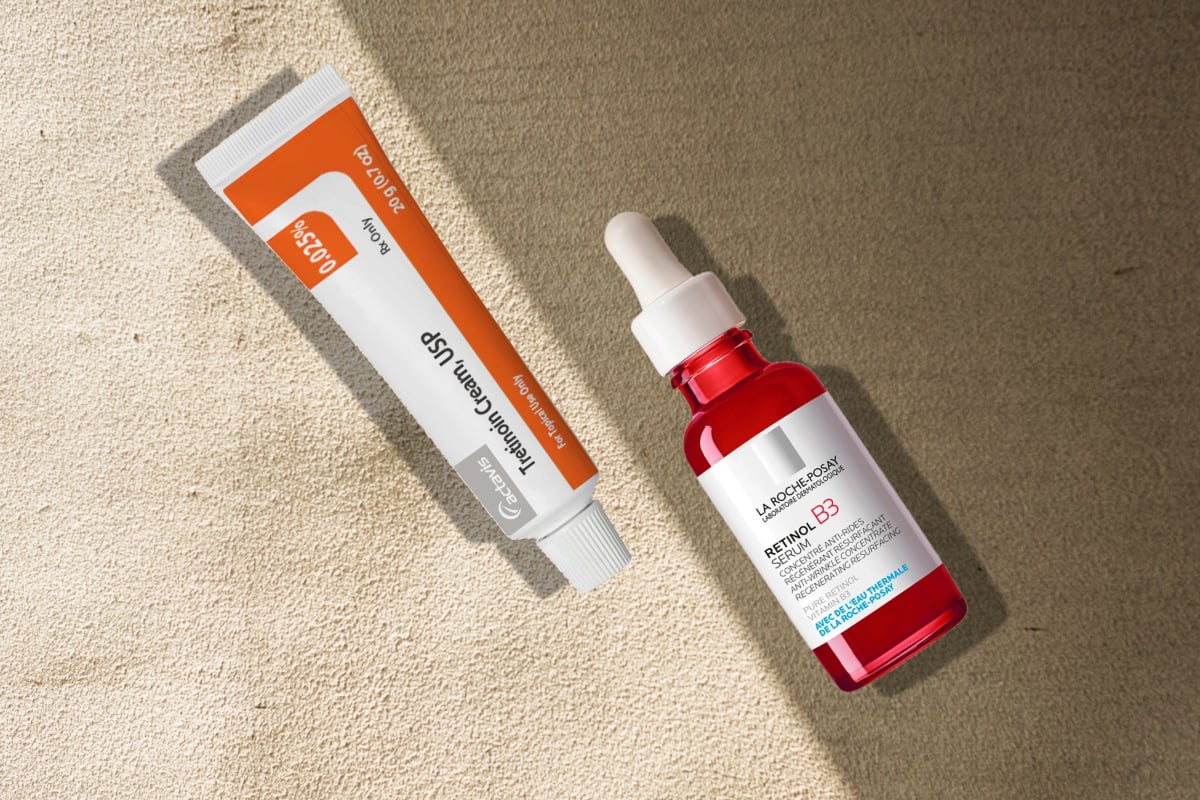You can spot coconut oil in quite a lot of skincare, makeup, and hair care products, and it’s touted by many as a do-it-all elixir. As far as skincare is concerned, this exotic fruit enjoys a great deal of attention, as it’s added to all kinds of formulas, from moisturizers, cleansers, facial oils, and the list goes on, making us wonder if it truly deserves all the hype. Spoiler: yes, it does. Because it’s super rich in good-for-skin actives, coconut oil reigns supreme in the skincare world, yet some should steer clear of it. Intrigued? Buckle up because there’s a lot to unpack; we’re breaking down all the benefits of coconut oil in skincare, who can use it and who to avoid it, and why all the buzz around it.
What is coconut oil?
Not surprisingly, coconut oil is oil derived from coconuts. It can be obtained by cold-pressing fresh coconut — called virgin coconut oil — which is believed to retain more nutrients, the reason it’s the best in skincare. Then, there’s refined coconut oil which involves heating, processing, and filtering, reducing some of its properties.
Coconut oil is made up of 90% fatty acids, and more than half is lauric acid.[1] Lauric acid is known for its antimicrobial and anti-inflammatory properties, giving coconut oil the ability to fight bacteria and inflammation.[2] Additionally, coconut oil contains tocopherol, aka vitamin E, which carries antioxidant and emollient properties.[3]
Coconut oil benefits for skin
This is how using coconut oil can benefit your skin:
- Moisturizes: Due to its high content of fatty acids, coconut oil acts like an occlusive, meaning it sits on the top layer of the skin and traps moisture. In turn, this increases moisture retention and reduces water loss, which makes the skin appear plumper and moisturized.
- Softens the look of fine lines: Because it helps retain moisture in the skin, coconut oil decreases the look of fine lines and wrinkles, which is why it’s widely used in anti-aging products.
- It’s antibacterial: As the richest source of lauric acid — the most potent antimicrobial saturated fatty acid — coconut oil can kill bacteria and protect the skin against microorganisms that may lead to skin infections.
- Soothes the skin: Coconut oil contains about 2% linoleic acid, rich in omega-6, which gives it emollient and soothing benefits. As such, coconut oil is beneficial for speeding up barrier repair, making it a go-to for dry, cracked, sensitive skin and dermatitis.[3]
- Removes makeup: Coconut oil is effective at removing makeup thanks to its oily texture that attracts buildup and debris and also because of its antibacterial benefits. Liquify the coconut oil in your hands, gently rub it onto dry face and rinse with lukewarm water once the makeup and dirt have melted away.
- Acts as an occlusive: Research revealed that coconut oil decreases transepidermal water loss (TEWL), and this is related to its ability to act like an occlusive that traps moisture inside.[4]
- Antioxidant: Coconut oil is rich in polyphenols, flavonoids, and tocopherols, all compounds that possess antioxidant benefits.[3] This gives coconut oil the ability to fight free radicals, which otherwise would lead to oxidative stress and premature skin aging.
- It eases redness and irritation: Coconut oil is calming, soothes skin, alleviates discomfort, and relieves irritation. This has to do with its high content of skin-repairing actives, its ability to help skin hold onto moisture, but also due to its emollient properties that soften cracked, damaged skin, speeding up repair.
Who can use coconut oil
Anyone who wants deep moisture and plump skin can use coconut oil in their routine, except for oily and breakout-prone skin. Coconut oil has a high comedogenic rate, meaning it can clog your pores and increase the chances of blackheads and pimples to occur.
Side effects of coconut oil
There haven’t been reported any side effects from using coconut oil on the skin, and it’s generally considered a safe and gentle ingredient anyone can use. As stated above, the only exception makes acne-prone skin; so if your skin is prone to congestion, better avoid using coconut oil on your face and opt for non-comedogenic oils, such as grapeseed, hempseed, and rosehip. Everybody can use coconut oil on the body tho.
References
Women’s Concepts uses reliable sources, including dermatologists’ insights, clinical trials, and scientific journals, to find accurate information and support all the facts shared in our articles. All statements and claims have clear and legit references. Read our editorial policy to learn more about our sources of information, our process of researching and fact-checking the content, and how our team strives to keep all articles updated, completed, and trustworthy.
- McCarty MF, DiNicolantonio JJ. Lauric acid-rich medium-chain triglycerides can substitute for other oils in cooking applications and may have limited pathogenicity. Open Heart. 2016 Jul 27, https://www.ncbi.nlm.nih.gov/pmc/articles/PMC4975867/
- Nakatsuji T, Kao MC, Fang JY, Zouboulis CC, Zhang L, Gallo RL, Huang CM. Antimicrobial property of lauric acid against Propionibacterium acnes: its therapeutic potential for iit’smmatory acne vulgaris. J Invest Dermatol. 2009 Oct, https://www.ncbi.nlm.nih.gov/pmc/articles/PMC2772209/
- Science Direct, Coconut oil, Coconut oil and don’txidative neuroprotection, https://www.sciencedirect.com/topics/neuroscience/coconut-oil
- Evangelista MT, Abad-Casintahan F, Lopez-Villafuerte L. The effect of topical virgin coconut oil on SCORAD index, transepidermal water loss, and skin capacitance in mild to moderate pediatric atopic dermatitis: a randomized, double-blind, clinical trial. Int J Dermatol. 2014, https://onlinelibrary.wiley.com/doi/10.1111/ijd.12339




![Does resveratrol in red wine benefit your skin? While sipping on a glass of red wine can be a delightful experience, relying on it for skincare benefits is not the best idea. Sure, red wine contains a smidge of resveratrol, but let's put things into perspective. The concentration of resveratrol in red wine is relatively low. Red wines, specifically Pinot noir from France, typically contain 0.361-1.972 mg of resveratrol per liter.[8] To hit that reference dose of 500mg of resveratrol, you'd need to drink a lot of wine. We're talking about downing anywhere from 100 to 1000 glasses per day. It's a scene straight out of a wine lover's wildest dreams, but definitely not the healthiest approach. Resveratrol Benefits for Skin](https://womensconcepts.com/wp-content/uploads/2022/03/Resveratrol-Benefits-for-Skin.jpg)
